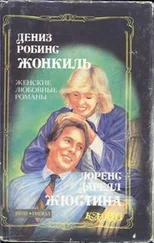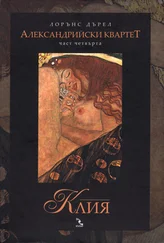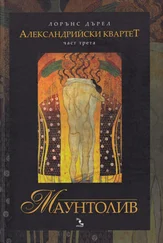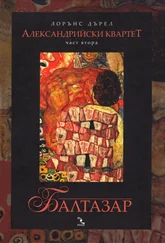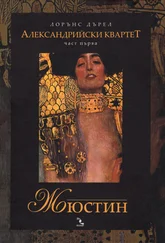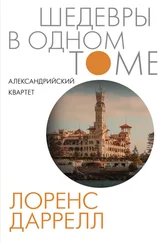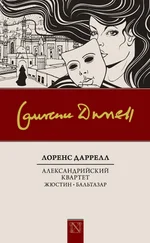Лоренс Даррелл - Prospero's Cell
Здесь есть возможность читать онлайн «Лоренс Даррелл - Prospero's Cell» весь текст электронной книги совершенно бесплатно (целиком полную версию без сокращений). В некоторых случаях можно слушать аудио, скачать через торрент в формате fb2 и присутствует краткое содержание. Жанр: Проза, на английском языке. Описание произведения, (предисловие) а так же отзывы посетителей доступны на портале библиотеки ЛибКат.
- Название:Prospero's Cell
- Автор:
- Жанр:
- Год:неизвестен
- ISBN:нет данных
- Рейтинг книги:4 / 5. Голосов: 2
-
Избранное:Добавить в избранное
- Отзывы:
-
Ваша оценка:
- 80
- 1
- 2
- 3
- 4
- 5
Prospero's Cell: краткое содержание, описание и аннотация
Предлагаем к чтению аннотацию, описание, краткое содержание или предисловие (зависит от того, что написал сам автор книги «Prospero's Cell»). Если вы не нашли необходимую информацию о книге — напишите в комментариях, мы постараемся отыскать её.
Prospero's Cell — читать онлайн бесплатно полную книгу (весь текст) целиком
Ниже представлен текст книги, разбитый по страницам. Система сохранения места последней прочитанной страницы, позволяет с удобством читать онлайн бесплатно книгу «Prospero's Cell», без необходимости каждый раз заново искать на чём Вы остановились. Поставьте закладку, и сможете в любой момент перейти на страницу, на которой закончили чтение.
Интервал:
Закладка:
Meanwhile Theodore has compiled his list of characters with the help of the saturnine young man, while Zarian is well and truly launched upon an anecdote about his early life in Armenia, his mane of silver hair flying and his expressive voice rolling. The copper cauldrons are smoking, while the scavenging cats are feasting piteously all round our feet, and the wooden sign of the 'Partridge' is swinging in a light breeze — a good augury for the night journey home. Calm, upon the dark calmness of the night outside, the tangoid music of the guitar and the fiddle grazes and moves; banal but wonderfully moving, the words are taken up by the diners, until even the cook beats with a ladle on a cooking-pot to mark the time.
The three players take their leave with warmth, promising us to play us any piece of our choice the following day, and Zarian shakes hands warmly with each while continuing his faultless recitation of adventures in French to Nimiec, whose energies are divided between laughing and feeding a tabby cat under the table.
It is after midnight when we separate, N. guarding the precious menu upon which the fruits of Theodore's scholarship are written in his flawless miniscule handwriting. The port is dark, and alive with the lick and slap of dark water; there is a spark of light off Stiletto; wind south-westerly upon a clean tranquil darkness. The little boat rides clear in her white awnings; turns to Albania her sharp cheeks, and slides clear of the fort. And so home to the white house, tired and happy, and with a sense of many blessings.
'Karaghiosis,' writes Theodore, 'and the shadow-play which created him, are both ancient. The tradition of the hero in drama is medieval. His adventures rival those of Tyll Owlglasse in the German — and his place in the popular imagination is one which one could compare with the Elizabethan Tarleton. The disturber of social justice, he never does anything to alienate the audience, and his political licence is almost absolute (for example, despite the Metaxas dictatorship Karaghiosis enjoyed uninterrupted powers of critical comment, at a time when even Plato was banned in the University of Athens — or at least expurgated). He is the spirit of the little man — but the Greek little man; he is splendid at loafing, borrowing, and playing practical jokes on his friends which have a strong profit-motive. He is a current symbol for the whole Middle East under varying forms. The comic phallus, we have already noticed, has been translated into an arm so long and so expressive as almost to satisfy the psychological theory of symbolic substitution. The fun is not by any means clean fun by puritan standards and nothing like it would be allowed on the stage in London; but is essentially pure in that it is broad and unmalicious. The list of characters which appear from time to time in the Karaghiosis mythology is quite considerable; of his own family there is first of all his wife (Karaghiozaina: [Greek]). She is quite conventional, while his numberless children (Kollitiri: [Greek]) supply unvarying comic relief without becoming distinguishable from the average street urchin. Karaghiosis' uncle (Barba Giorgos: [Greek]) is made of sterner stuff. A shepherd from the mountains, he wears the fabulous foustanella and speaks with the crackling dialect of Aitolia and Akarnania. His huge moustaches bristle with avarice and friendliness. Gullible at times he is usually honest and bold. His particular opposite number is Dervenagas ([Greek]) who is Albanian and resembles Barba Giorgos in many ways. Their meetings are usually accompanied by tremendous tussles in which Dervenegas is almost always beaten. Karaghiosis dislikes him hotly and takes every opportunity of humiliating him. The Vizier, the Aga, and the Cadi are conventionalized Turkish figures of extraordinary size; the former is the most important and is on the whole sympathetically represented.
Hadjiavatis is the Turkish town crier and is associated with all Karaghiosis' rascalities — in which he usually suffers instead of their author. Next in importance come Sir Gnio-Gnio and Captain Nikolis. Gnio Gnio ([Greek]) is an idiotic, lisping imbecile in a top hat and tail-coat with a long pointed beard. He represents Zante, and speaks with the curdling sing-song accents of the island. This of course is from our point of view. It is presumed that when in Zante he represents Corcyra with a changed but still sing-song voice. Captain Nikolis is a makeweight ([Greek]) whose atmospheric value lies in his baggy breeches and his Aegean fez.
And now we move from character to myth; for Alexander the Great ([Greek]) survives still in the Karaghiosis cycle of plays as a huge warrior dressed in full armour. He even kills the dragon ([Greek]) in certain plays, and obviously owes something to St. George. Next comes Morphonios ([Greek]) though exactly what he is one cannot decide. A hideous mommet with a vast lolling cranium, he speaks with a frantic affectation of voice, and dresses in conventional European clothes. He is sometimes played off against Stavrakas ([Greek]) an extremely nasty specimen of Piraeus bravo clad in exaggerated modern dress and felt hat — which, in the course of his lengthy conversations, he is in the habit of cocking over one eye. His self-assurance is the comic vein in him, and this Karaghiosis exploits to the full.
To bring up the tail-end of this procession one could list The Lord or The Frank ([Greek]) tail-coated representa tives of European culture, as well as Abraham, Moses, Isaac, etc., an endless series of Salonika Jews, uniform in size, dress and accent. Female figures seem very unimportant in the plays, and besides Karaghiosis' wife they include an occasional Vizier's daughter, a princess, and a wife of Barba Giorgos.
The puppets themselves are the result of curious workmanship; since their dimensions of operation are so limited, and since the light which illuminates them comes from behind the screen, it is necessary to do as much filigree-work as possible to enliven the bare outlines of the figures. Great ingenuity is shown in their manufacture, and the use of a kind of many-coloured gelatine material enables their clothes to be as brightly coloured as those of the island peasants themselves.
18.10.37
Three days of squall and rain. The wind moans on the promontory, and all day long the threshing of sea sounds on the white rock outside the house. In the interval as the undertow draws back you hear the dull patient throb of the hand-loom in the magazine, and the cough of the old billy-goat. Trees lean and whirl where the wind pours through the vents and boulder-strewn crevices of Pantocrator. The roof has been sprung in several places, but this is the first taste of winter, and it is good that we should be proven windand-water-tight before the real thunderstorms of December. Theodore has unearthed another charm against accident; it is for fair-weather sailors on moonlit nights. 'It is widely believed that the figure of a woman rising from the sea beside the boat calls out in wild accents “How is it with Alexander?” ([Greek]). The correct answer for those who do not want their craft overturned by her rage and grief is “He lives and reigns still" ([Greek]). I do not know whether this charm will be of any practical assistance to you, but since you say you always run out to the Bay of Fauns at the full moon, it would be better on the whole to memorize it. One can never tell.'
I ask Anastasius about the belief. He denies it with rather an uncomfortable look. He likes to consider himself superior in intelligence to the ordinary peasants, but I can tell from his manner that he has heard of it. 'Does old Nicholas believe it?' I ask, and he turns his black eyes out of the window for a full minute before shrugging his shoulders and replying 'How can I tell what these old men believe? He cannot read and write.' Father Nicholas is not an heir to our common European culture!
Читать дальшеИнтервал:
Закладка:
Похожие книги на «Prospero's Cell»
Представляем Вашему вниманию похожие книги на «Prospero's Cell» списком для выбора. Мы отобрали схожую по названию и смыслу литературу в надежде предоставить читателям больше вариантов отыскать новые, интересные, ещё непрочитанные произведения.
Обсуждение, отзывы о книге «Prospero's Cell» и просто собственные мнения читателей. Оставьте ваши комментарии, напишите, что Вы думаете о произведении, его смысле или главных героях. Укажите что конкретно понравилось, а что нет, и почему Вы так считаете.

